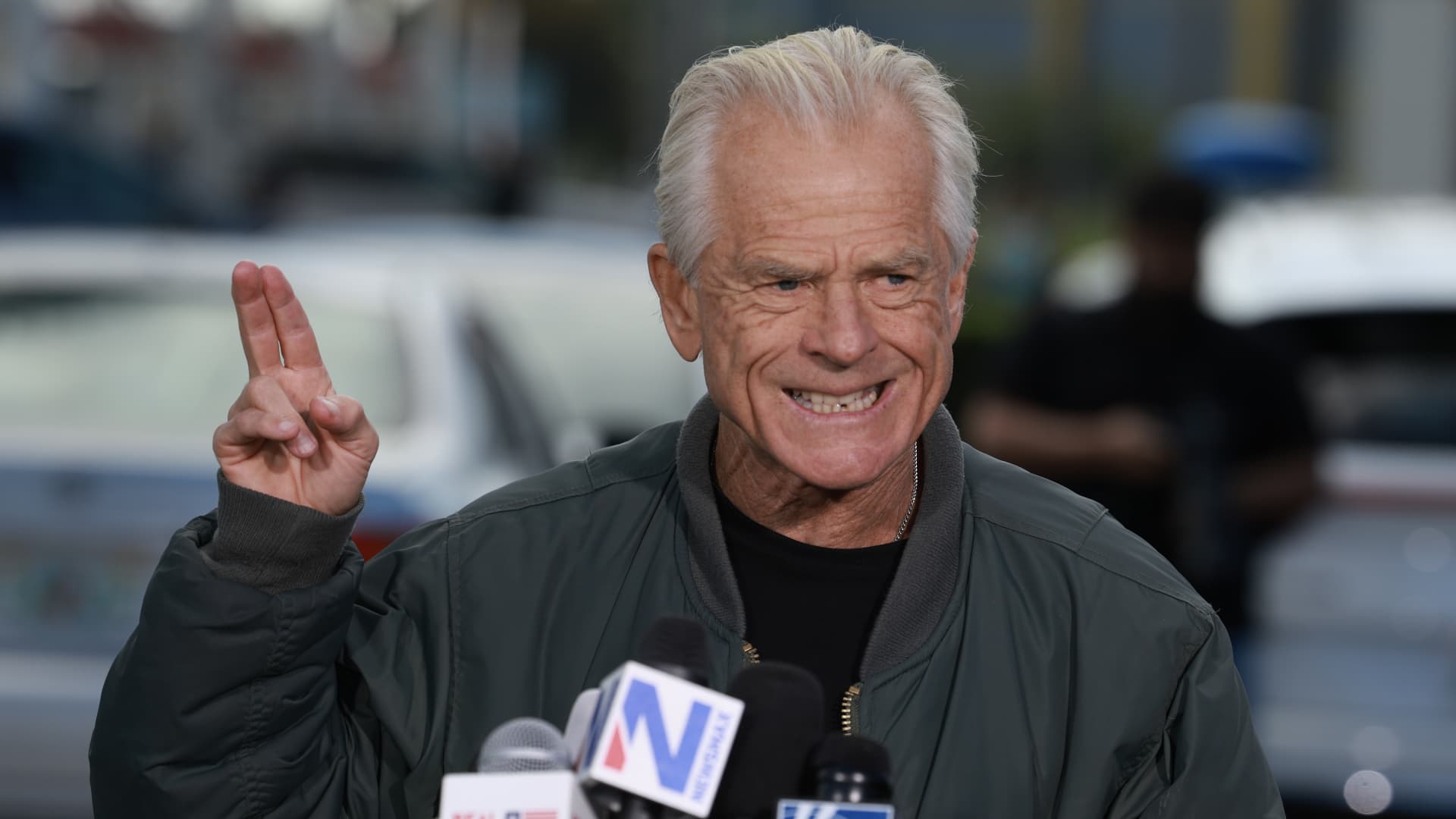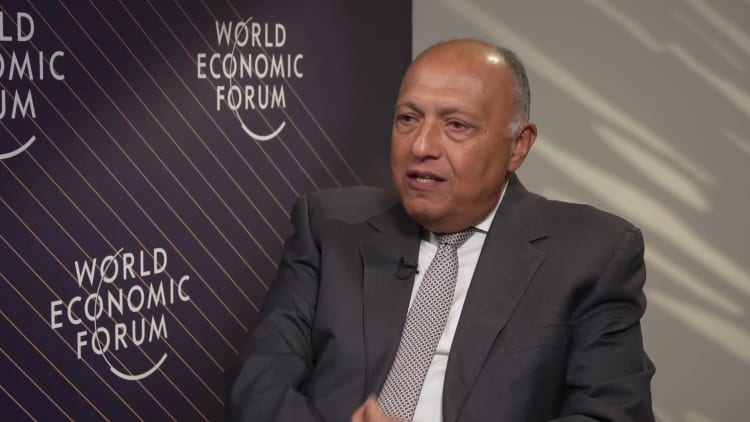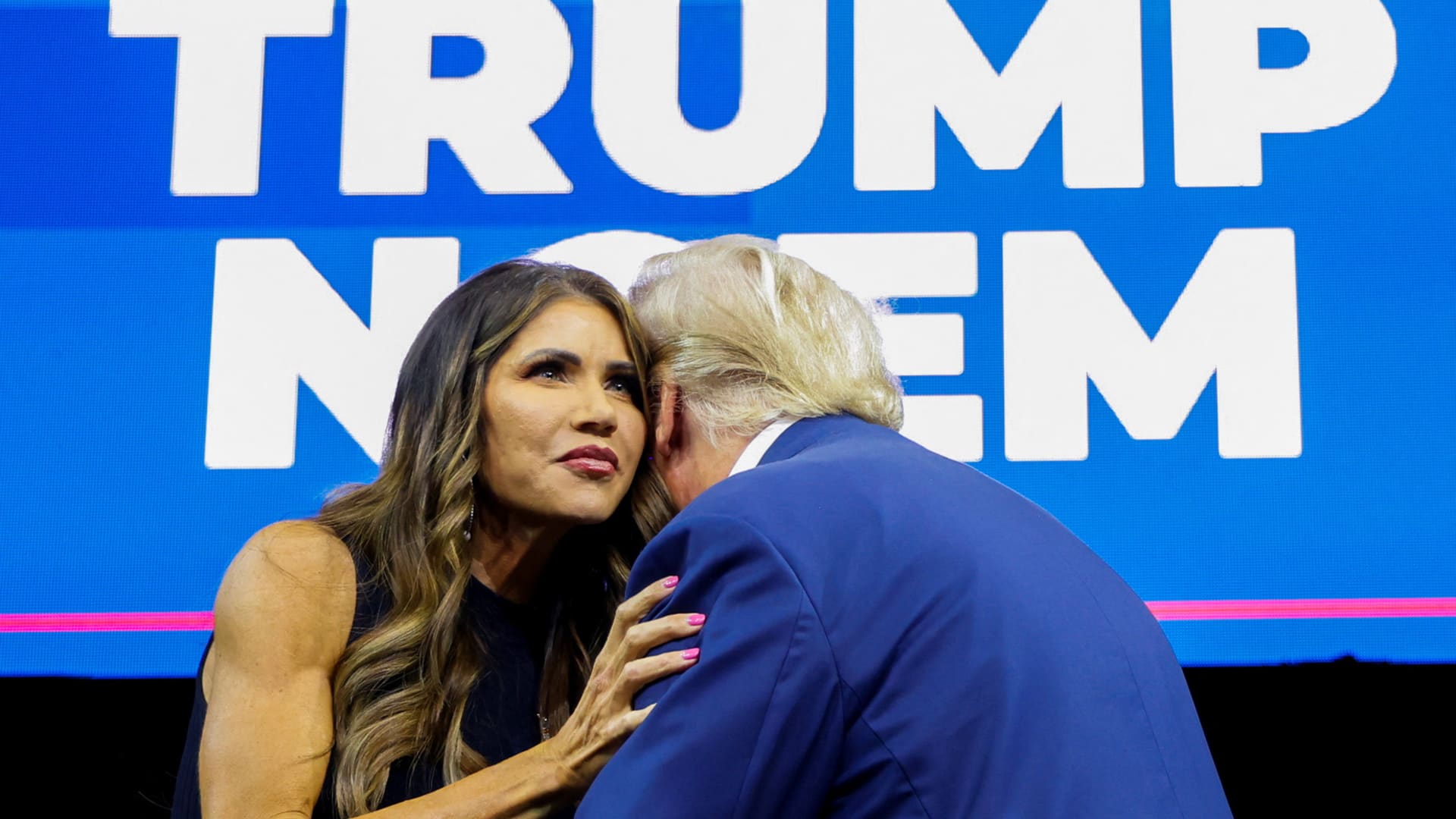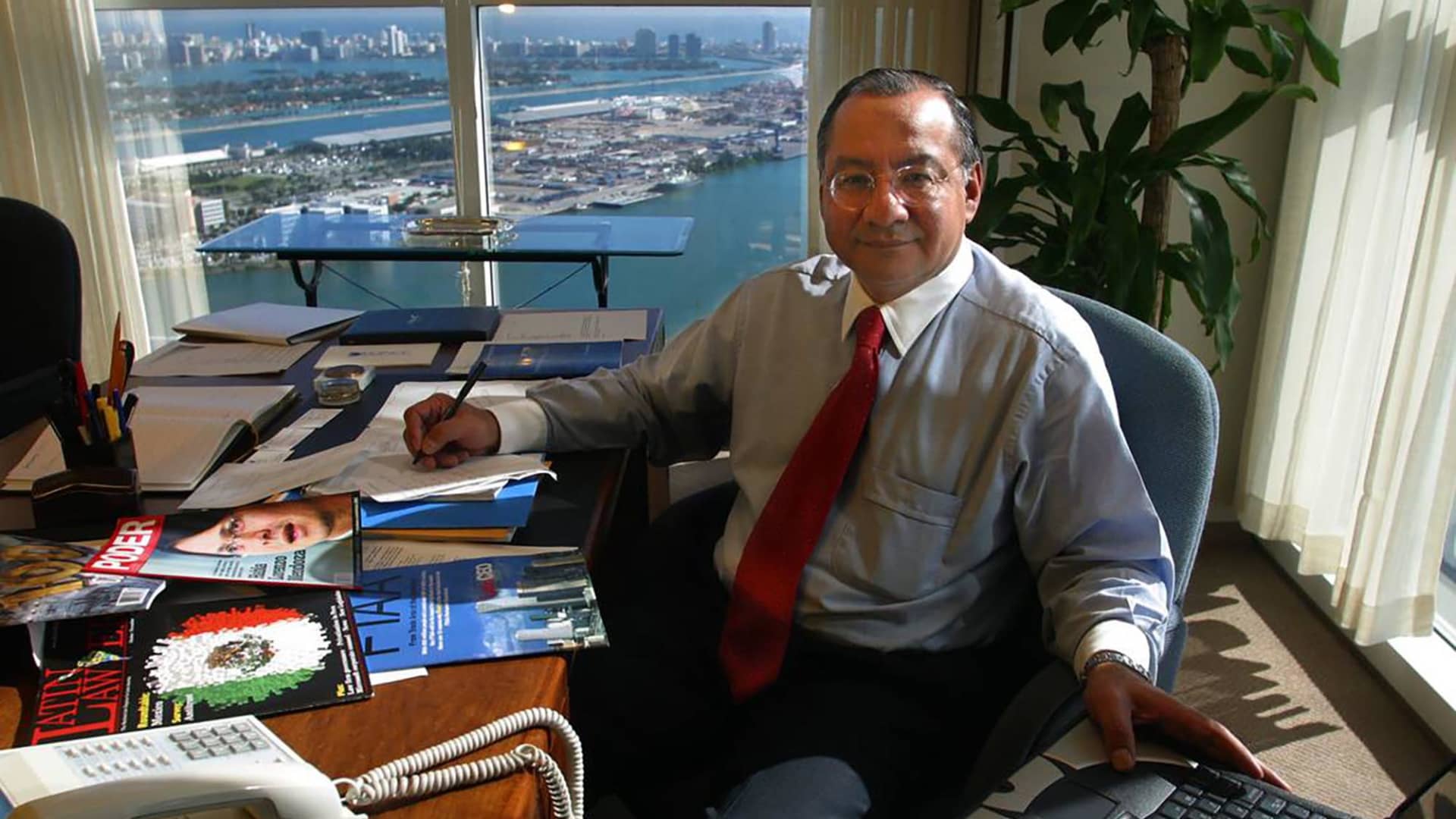The Miami Herald profiled former Ambassador V. Manuel Rocha in 2003 when he joined the firm Steel Hector & Davis to open doors in Latin America.
Raúl Rubiera | Miami Herald | Getty Images
When Carolyn Lamb saw news of the arrest of Cuban spy Victor Manuel Rocha on the news last December, she recognized him immediately. It was the same man who had sat in her living room in Omaha 17 years ago and tried to make a deal.
On Friday, Rocha, 73, was sentenced to 15 years in prison for acting as a foreign agent on behalf of the Cuban government and pleaded guilty to two counts of conspiracy. In addition to his prison sentence, Rocha faces three years of supervised release, a $500,000 fine and several other conditions.
Rocha’s arrest last year stunned the diplomatic community, in part because of his long service as an agent – more than 40 years, much of it at the US State Department, including a stint as US ambassador to Bolivia and another on the National Security Council.
In exchange for a reduced sentence, Rocha’s plea agreement requires him to cooperate with prosecutors and disclose what secret activities he conducted for Cuba.
Carolyn Lamb hopes this trial will shed light on what Rocha was up to in her living room for nearly 20 years.
The claims
Lamb describes how Rocha traveled around the country in 2007 offering to buy the paper claims to an 80-acre farm, a 1959 Buick and thousands of Cuban telephone company shares that belonged to Lamb’s father before they were confiscated by the Castro regime.
The former Coca-Cola building in Havana was, ironically, decorated in the company’s colors. The building now houses the headquarters of the state-owned “Beverage Company of Havana”.
Justin Solomon | CNBC
Castro not only nationalized American property; he confiscated all private property. Every home and business became the property of the government, and none of the owners received any money for it. With a few exceptions, this still applies today.
In 1970, the U.S. government assessed Lamb’s claim at $489,208 and assessed an annual interest rate of 6% from the date of loss to the date of settlement. Using this formula, Cubans now owe $1.9 million on the claim. This number increases with each day that passes without accounting.
“They told me my claim was crap,” Lamb says of Rocha and a business associate with him that day in Omaha. They offered her $114,000 for the claim. Lamb said she was offended and suspicious of what she thought was such a cheap offer.
There are nearly 6,000 American claims to property and land in Cuba, all confiscated by Fidel Castro’s government after his 1959 coup. The total value of the claims is more than $7 billion and many are held by major U.S. brands such as Pepsi, General Electric and Twentieth Century Fox.
A former Woolworths store now used as a “10 cent store”, the equivalent of a dollar store in the United States.
Justin Solomon | CNBC
This large-scale confiscation of American property was one of the main reasons the United States imposed an embargo on Cuba more than 60 years ago.
Before the embargo can be lifted, the claims on these properties must be settled.
“It remains one of the biggest obstacles to normalizing relations with Cuba,” said Jason Poblete, Lamb’s lawyer.
“Was [Rocha] “Part of a plan to help lower the value of these claims and give the Cuban government an escape clause?” Poblete wondered aloud.
The lower the value of the claims, the less the Cuban government would have to pay in a future negotiated settlement.
Poblete also wondered whether Rocha was thwarting the process. “Did it make it more difficult to resolve the damages issue?” he said in an interview with CNBC.
It would be helpful for the Cubans to get information from Rocha because in a negotiation over the claims, “any information you could get would be useful,” said John Kavulich, head of the U.S.-Cuba Trade and Economic Council.
The former Sears Roebuck and Co. in Havana is now a data center for Cubans to use the Internet.
Justin Solomon | CNBC
But if Rocha’s involvement in the claims-buying business was indeed part of his undercover work, it would be news to his business partner.
Timothy Ashby says he was “astonished” by Rocha’s arrest because “he was almost too right-wing to believe it”, and Ashby could not imagine that Rocha would work for a communist government.
But looking back, Ashby says there were signs. “He had a thing for rich people.”
And that’s not all. “Once a week he would have the offices searched for bugs because he said he was worried the FBI might be listening to them,” Ashby said in a recent interview with CNBC.
Ashby assumed that Rocha’s paranoia about wiretapping was a response to the George W. Bush administration’s opposition to the business of buying up claims from Cuba.
But according to the Justice Department, by then Rocha was already in his third decade as a Cuban agent.
Ashby says buying up the receivables was his idea and that he brought Rocha on board because of his ties to the U.S. government.
The company they founded eventually raised $10.5 million and purchased nine claims, including large tracts of land and some hotels. But they were forced to abandon the operation, Ashby says, when the Bush administration viewed their activities as violating the embargo.
Timothy Ashby now writes spy novels. He didn’t know he would play a role in a real case.
Hidden career
Rocha was born in Colombia in 1950 and became a naturalized U.S. citizen in 1978 and a State Department employee in 1981. During his long diplomatic career, he served in U.S. embassies in the Dominican Republic, Honduras, Mexico, Argentina and finally Bolivia, where he was ambassador.
In the mid-1990s, he served for a year on the National Security Council, where he had special responsibility for Cuba, and then served in the U.S. Interests Section in Havana. The DOJ says he has had unique access to nonpublic U.S. government information throughout his career.
Rocha was caught when an undercover FBI agent posing as a Cuban spy recorded him on camera at three separate meetings in Miami in 2022 and 2023.
According to the Justice Department’s complaint, Rocha behaved like a Cuban agent during the meetings, consistently referring to the United States as “the enemy” and using the term “we” to describe himself and Cuba.
“What we’ve done…it’s enormous…More than a Grand Slam,” he once boasted.
The records indicate that Rocha was recruited by the Cubans in Chile in the 1970s and may have become a State Department employee to work as an undercover agent.
In the FBI recordings, he says that his well-known right-wing persona was part of his cover.
File photo of former U.S. Ambassador to Bolivia Manuel Rocha speaking to the press on July 11, 2001.
Gonzalo Espinoza | AFP | Getty Images
After leaving the State Department in 2006, Rocha became an adviser to the US Southern Command, a joint command of the US military whose area of responsibility includes Cuba.
At this time he entered the claims business.
Poblete hopes Rocha’s debriefing with U.S. officials could reveal more about what information he gave the Cubans about the claims and the claims process and whether he manipulated the settlement process to thwart it.
Lamb says she and the smaller claimants feel forgotten.
“We are not part of a large voting bloc and we do not have deep pockets to pay lobbyists on our behalf.”
Poblete said his client could actually sue Rocha. “We will use all resources to assist Americans whose property has been confiscated.”
Read more about CNBC’s politics coverage
Source link
2024-04-14 14:20:09
www.cnbc.com







